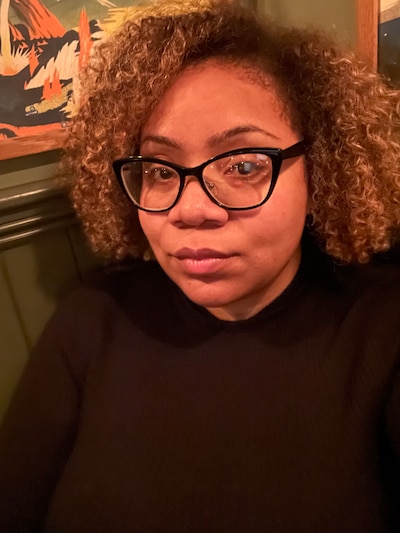I’ve been working since I was 16 years old. My family supported me as best they could, but I knew that education was my only way out of poverty.
In 2016, after a positive experience with a summer teacher training program called Breakthrough Collaborative — and triple-checking salary expectations to ensure I wouldn’t be impoverished — I decided that the classroom was for me.

I knew there would be obstacles, but I had no idea the challenges would prove so numerous. The heart of the matter was this: No one understands the core issues in recruiting and retaining teachers, especially teachers who are not white and middle class.
My experience is not unusual. Those who wring their hands over the ongoing teacher shortage and see the need for more educators of color often don’t get what prevents teachers like me from entering and staying in the profession.
I chose a teacher training program that requires about three months of unpaid work — better known as student teaching — over an alternative program where you are paid a salary to learn on the job. I knew the social and professional benefits I would accrue by receiving a degree from a highly ranked university, but it was expensive, especially since it was more or less impossible to hold a second (paid!) job while student teaching.
I surveyed 21 teachers of color in my university licensure program, and almost 80% had funding gaps, 66% of which involved the cost of tuition and the required three months of unpaid student teaching. That was my experience, too.
After graduating, I taught high school just outside Minneapolis. The students were predominantly non-white, and the teaching staff was overwhelmingly white.
I had imagined the emotional baggage that would come with being a perpetual outsider in a state where about 95% of the teaching staff is white, but I wasn’t prepared for the reaction of students. As a Black teacher, I was never under the impression that I would be a sort of superhero, but I did imagine that my race and background would differentiate me from my white colleagues, at least in a small way.
I soon realized that more than representing my Blackness to my students, I represented power, the power of a white establishment that had disrespected and disregarded their wellbeing. Black skin didn’t make me kin; thus, I remained an outsider even in my own classroom as I tried to break down barriers of resentment that educators — and American society, generally — had created over hundreds of years.
I soon realized that more than representing my Blackness to my students, I represented power.
My students saw my high academic standards as targeting them; they mistook feedback for animosity, and when they said my class was ‘too hard’ after I assigned a five-paragraph essay to my seniors, my principal sided with them and threw my authority away.
The administration appeared more concerned with graduation rates than with proficiency and growth. My students were poised to achieve so much more if the system actually cared.
When you question these low and racist standards, you risk being isolated from staff, targeted by administrators, and called inadequate because this child never had a problem in English before you came along. I could endure abuse from parents and students, or I could endure abuse from the school administration team — but I couldn’t do both. So I quit that job, but I stayed with teaching, albeit 4,000 miles away.
I moved to East London and now have a job at a local state school, teaching students ages 11-18. There is the expectation that schools are safe, children are looked after, and students learn. And these small things have made the biggest difference.
But some days, when I see my kids playing during break time or creating incredible essays and analyses of complex works, I’m wracked with guilt. Guilt that I can’t give back to the system that made me, back to the other children that came from neighborhoods like mine, and guilt that I left everyone behind.
Organizations like Sharif El-Mekki’s Center for Black Educator Development and the Man Up Teacher Fellowship are looking to improve the recruitment and retention of Black teachers, but the systemic issues are bound to continue when solutions tackle the effects, not the cause.
American schools love Black teachers until we disagree with you.
Jasmine Lane is an English teacher and Key Stage 3 coordinator for curriculum. She lives in London and, when not teaching, spends her time in the many museums that the city has to offer. You can follow her at @MsJasmineMN.
Note: This essay was commissioned by The Grade, an independent effort to support and improve schools coverage. Follow @thegrade_ on Twitter.



